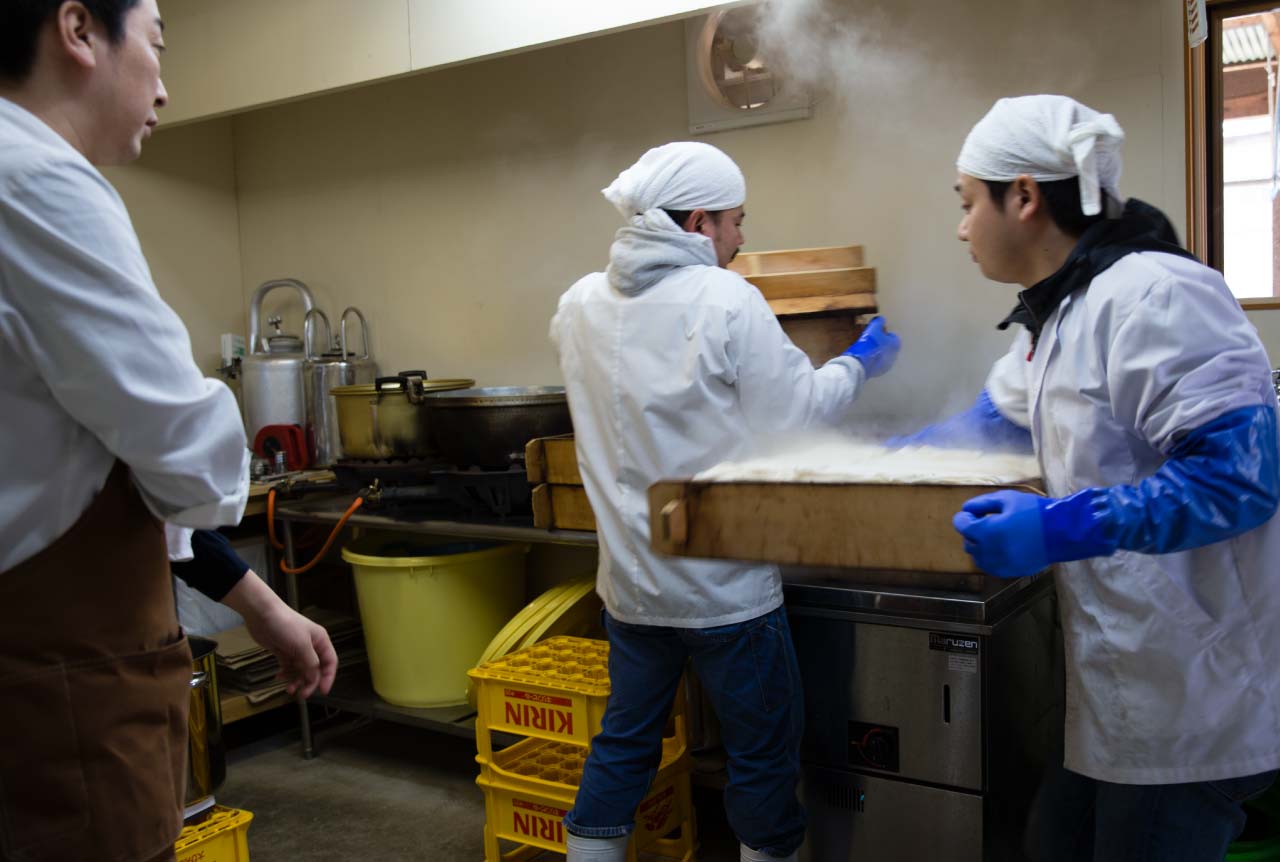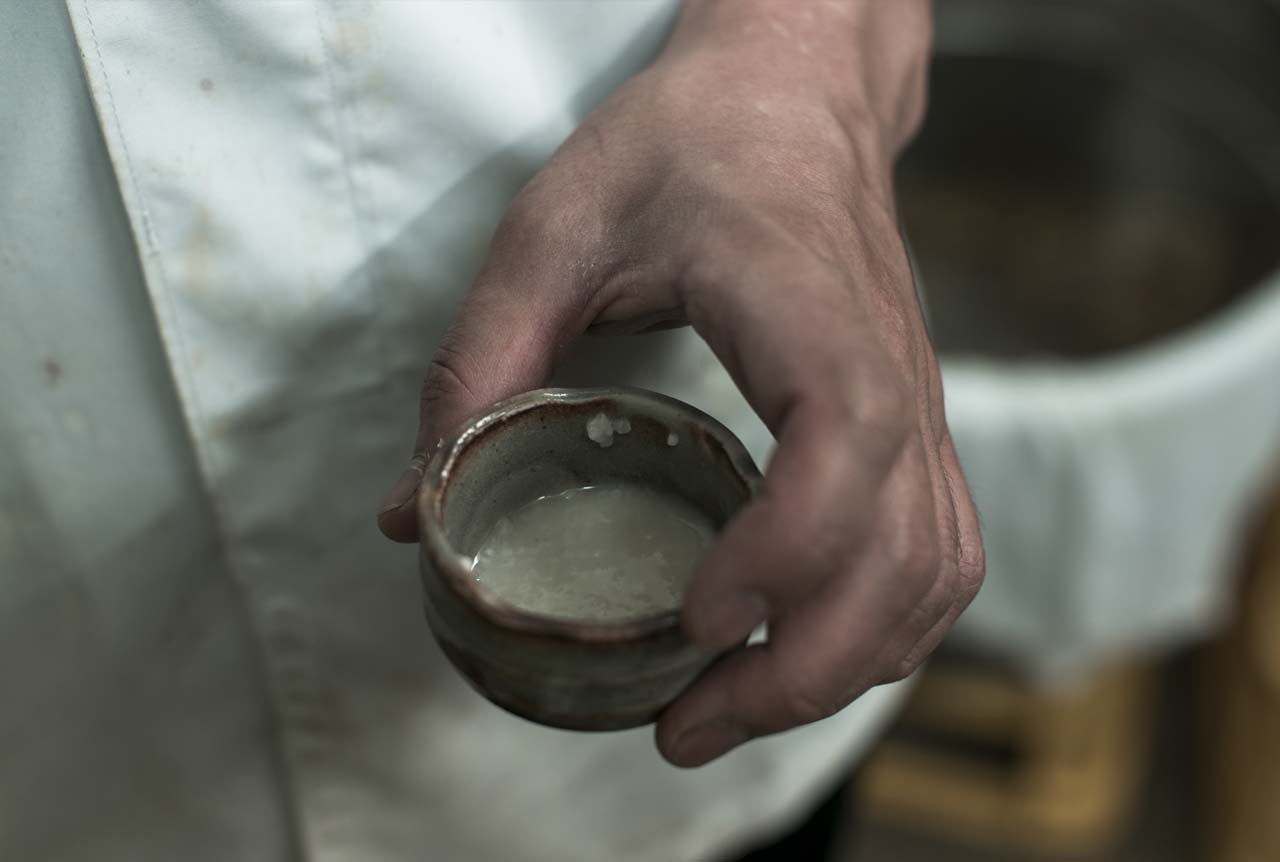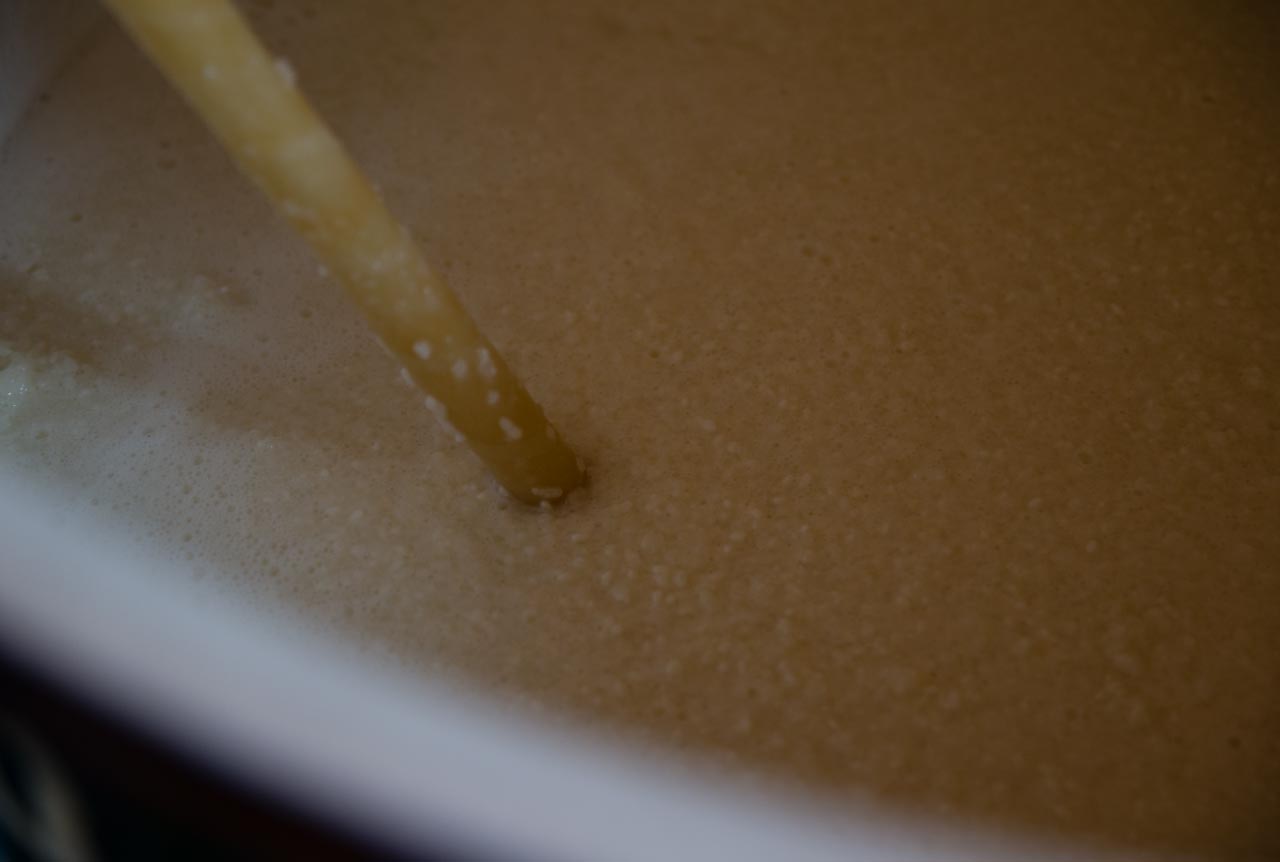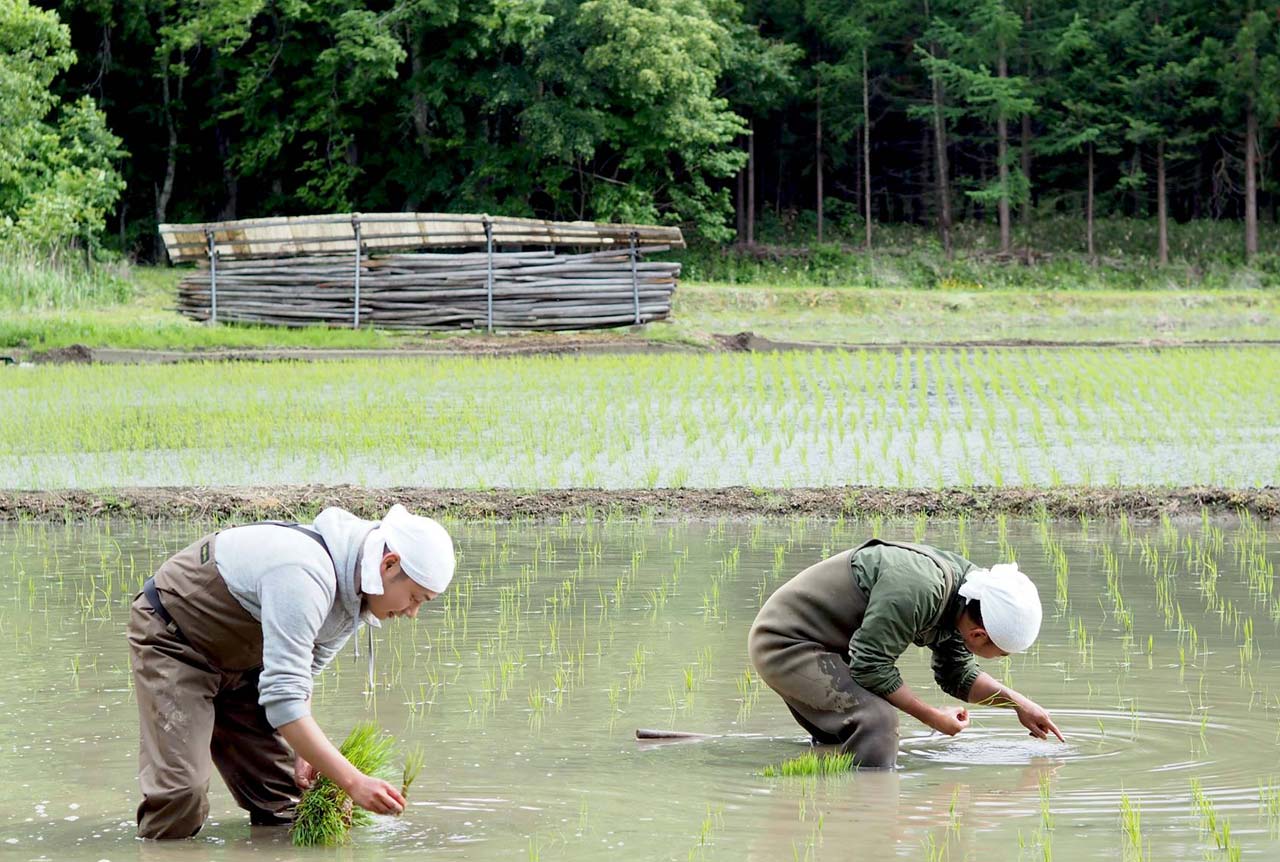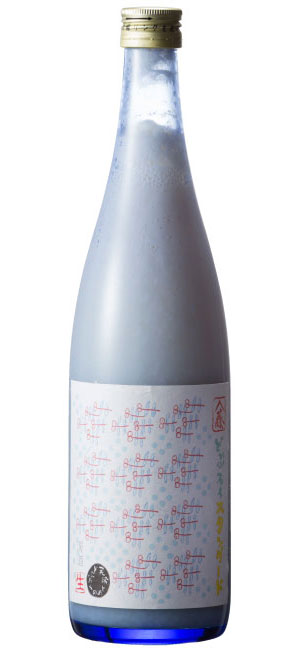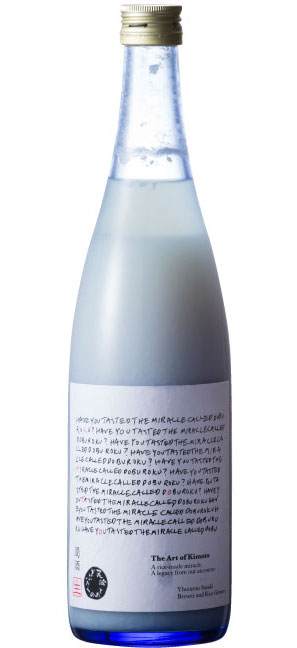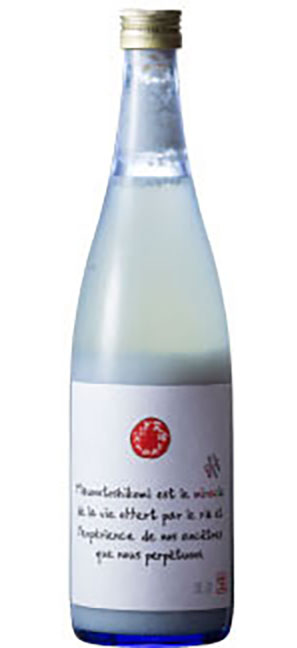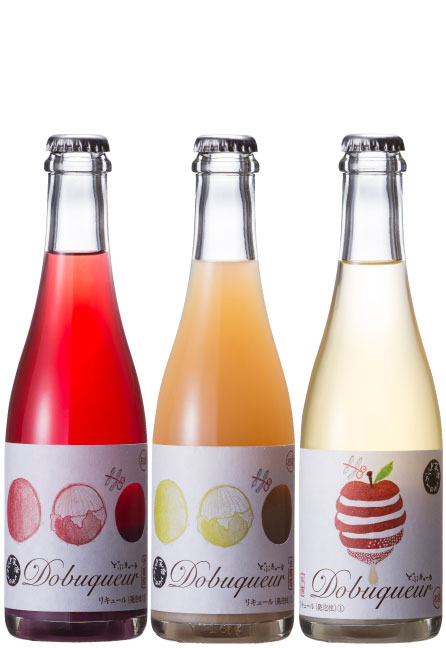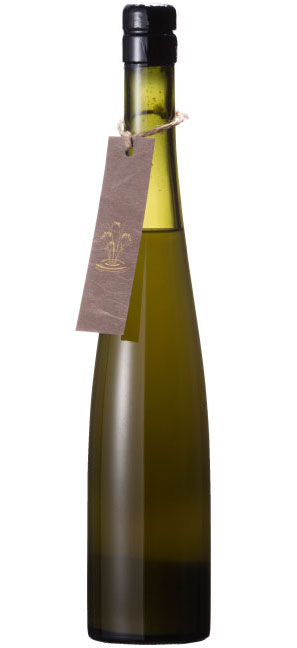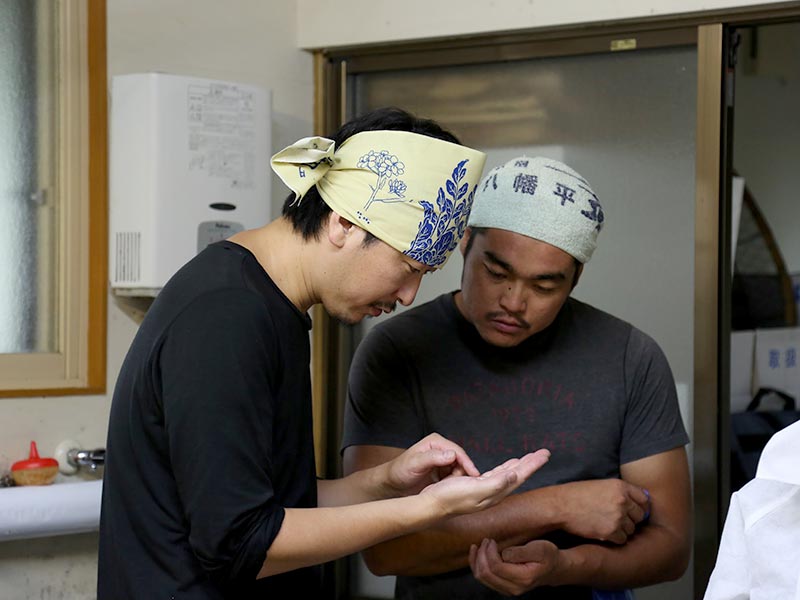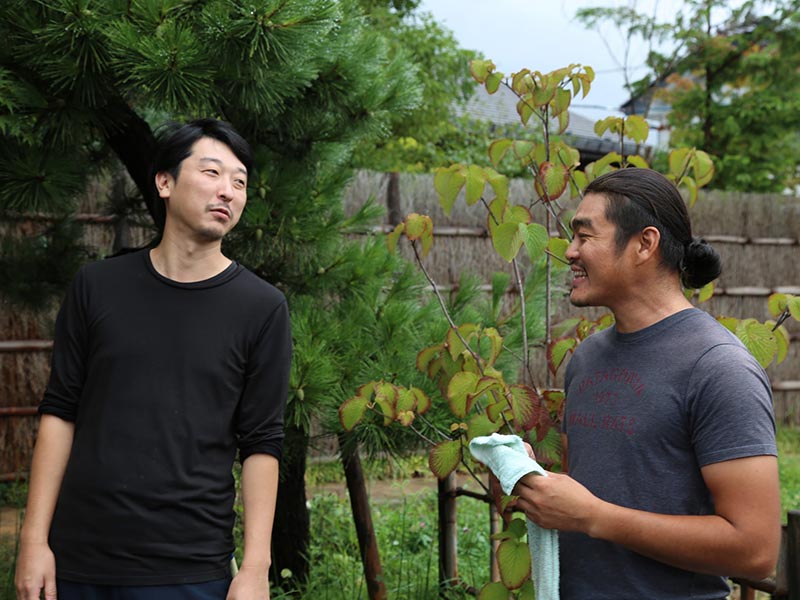Yotaro’s doburoku variations
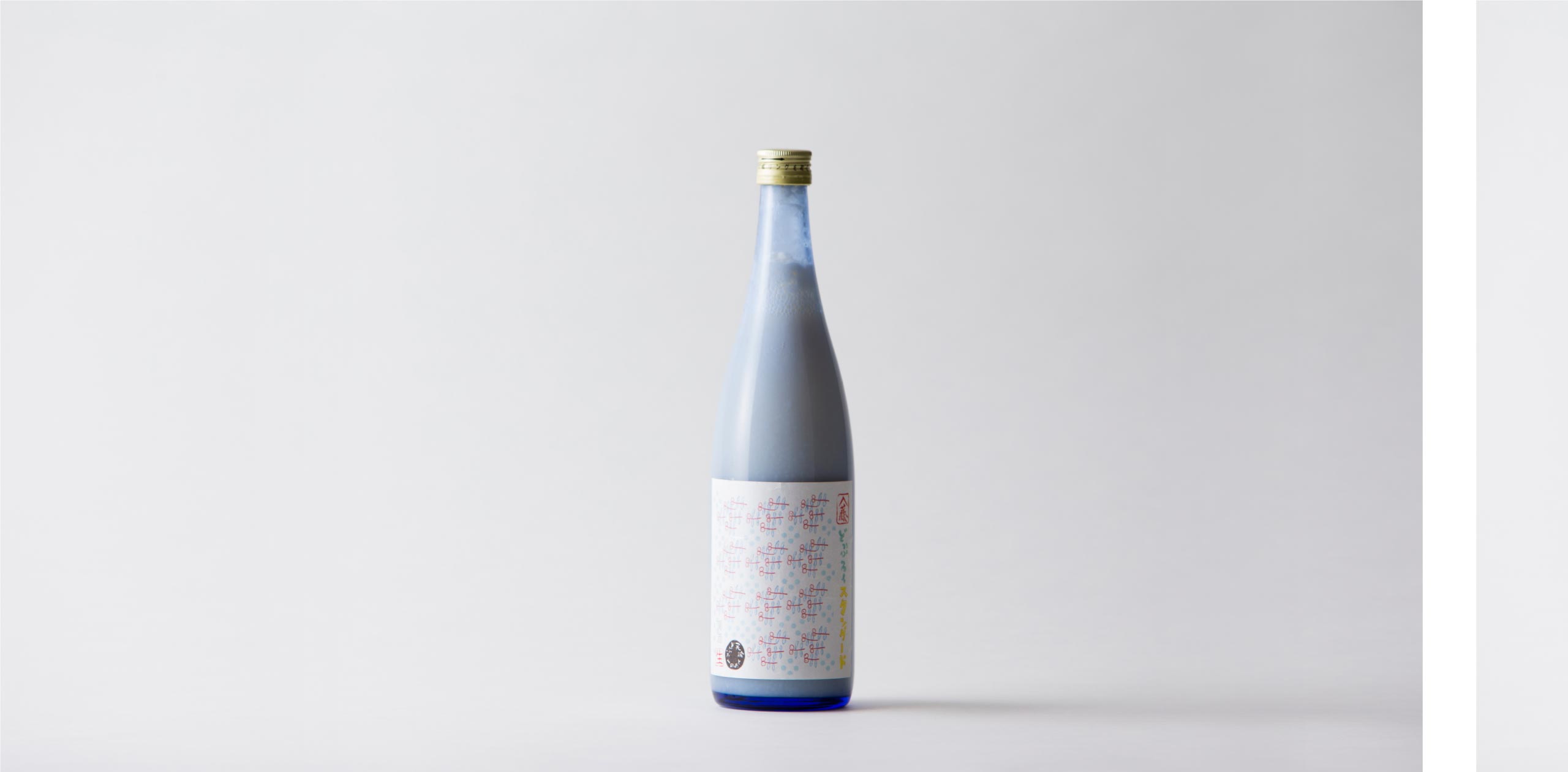
- Standard -
Produced by the sake brewing method known as sokujo-moto (lit., quick fermentation starter), in which lactic acid is added to the mix of steamed rice, water, and kōji to prevent contamination by unwanted bacteria. More time-efficient than the traditional kimoto method, it has become a modern standard. Enjoy the refined elegance of Yotaro’s doburoku in its simplest form.
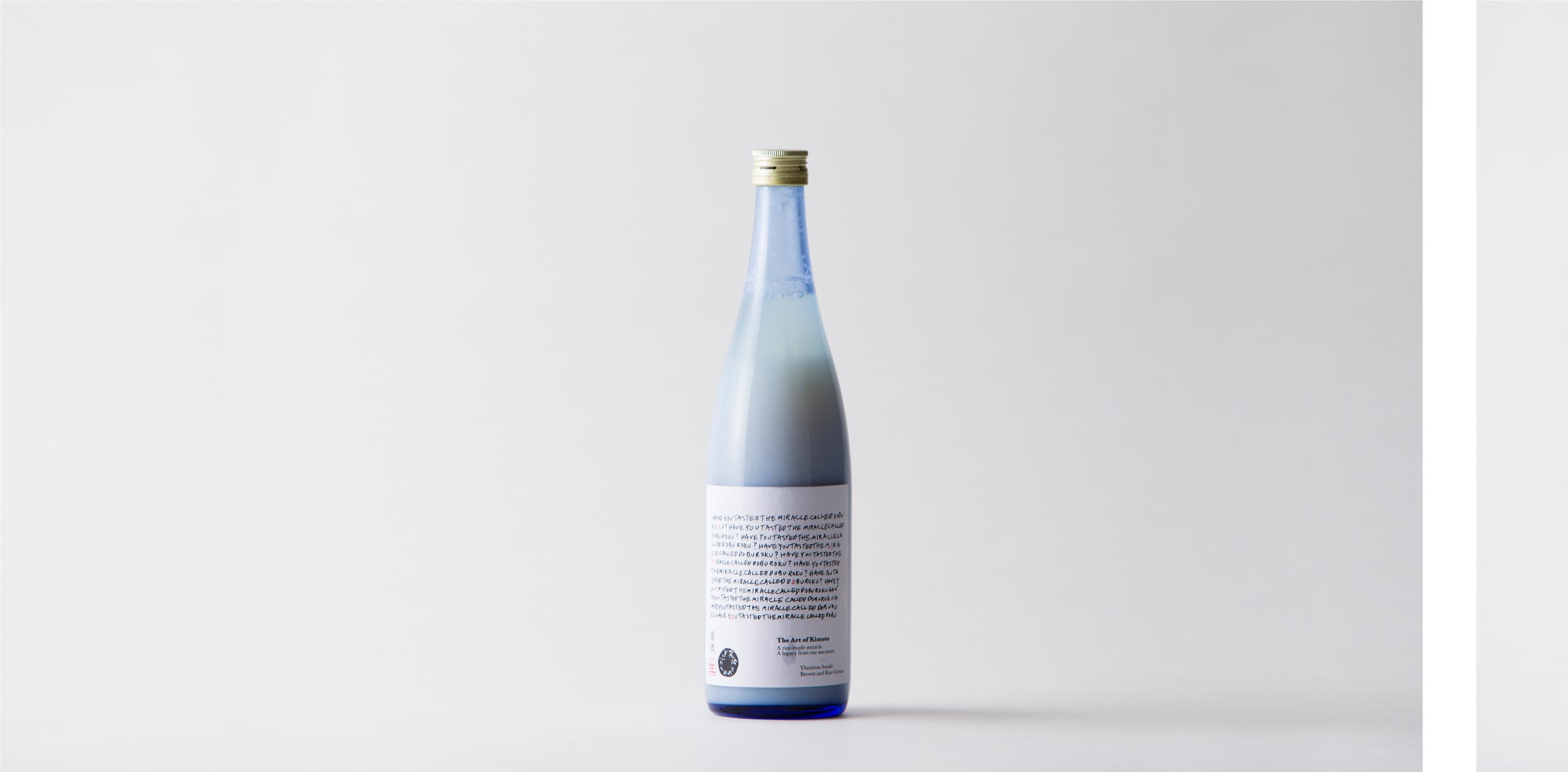
- Kimoto -
Brewed with a traditional method that dates back to the Edo period (1603-1868) in which no lactic acid is added. Instead, lactic bacteria is cultivated naturally to trigger a nitrous acid reaction that creates a contaminant-free environment where the naturally-occurring yeast can fully drive the fermentation process. Relying entirely on the forces of nature, the resulting brew will often take on a flavor all its own. Savor the complex, wild tastes of the natural world.
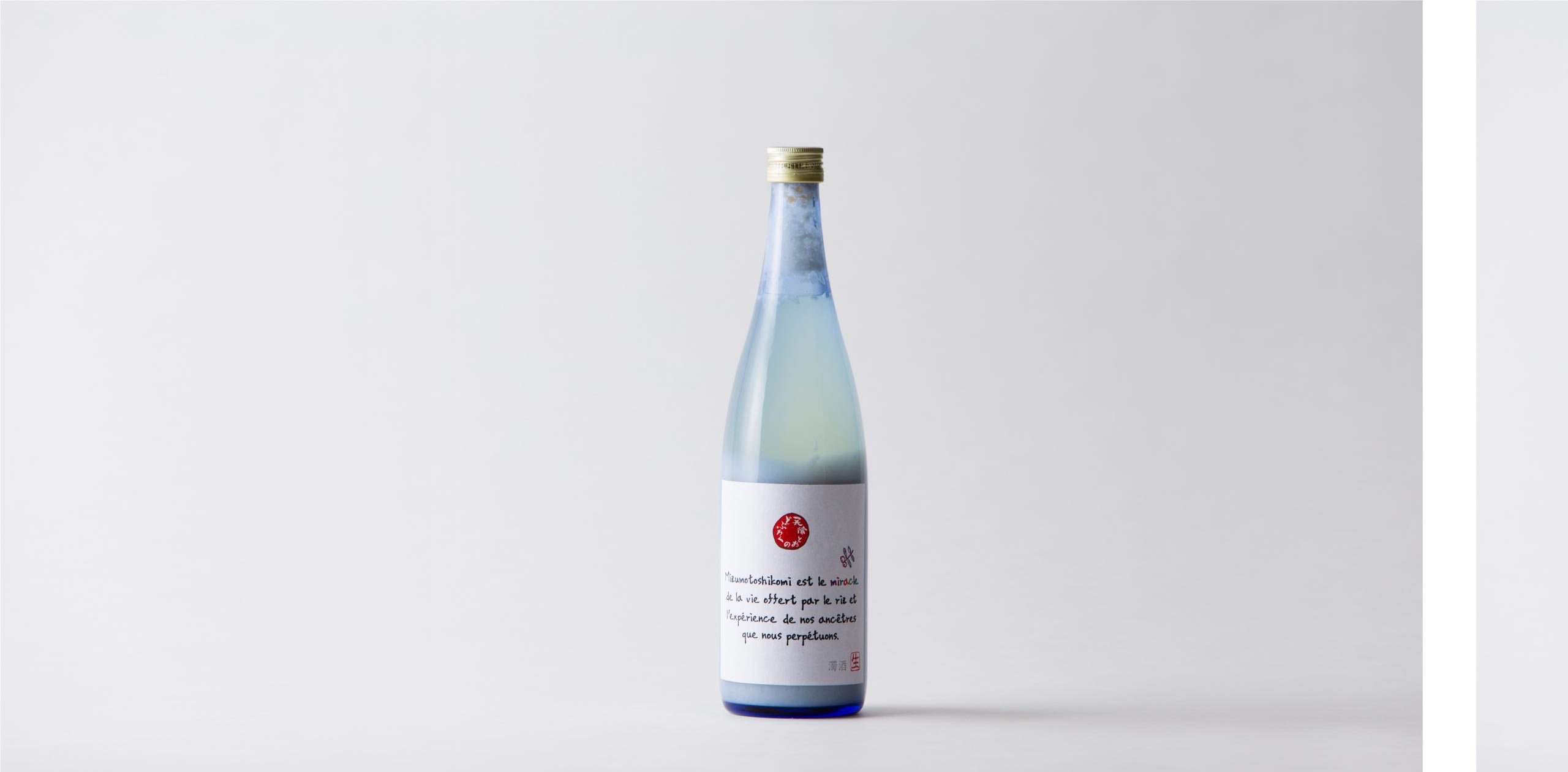
- Mizumoto -
Brewed with a method said to date back to the Kamakura period (1185-1333). Using only water and rice, lactic acid is naturally produced to create a "mother water", or soyashi-mizu. To this, steamed rice and kōji are added to naturally cultivate the yeast starter. It is also known as bodai-moto, a name derived from a temple on the outskirts of the ancient capital, Nara, where this brewing technique was considered a hidden treasure. Partake in a rich and elegant doburoku wrought by the power of nature.
Inheriting the legacy of his forefathers, Yotaro has created an elegant doburoku for the modern age.
In his quest to brew the perfect doburoku, Yotaro pays the utmost attention to rice farming. Listening to the voices of nature, he grows his organic rice using no pesticides or fertilizers. Rice raised in a harsh, natural environment is a truly irreplaceable element in his recipe. With the greatest care given to both the raw ingredients and the brewing process, Yotaro's doburoku can be stored alive for up to three years.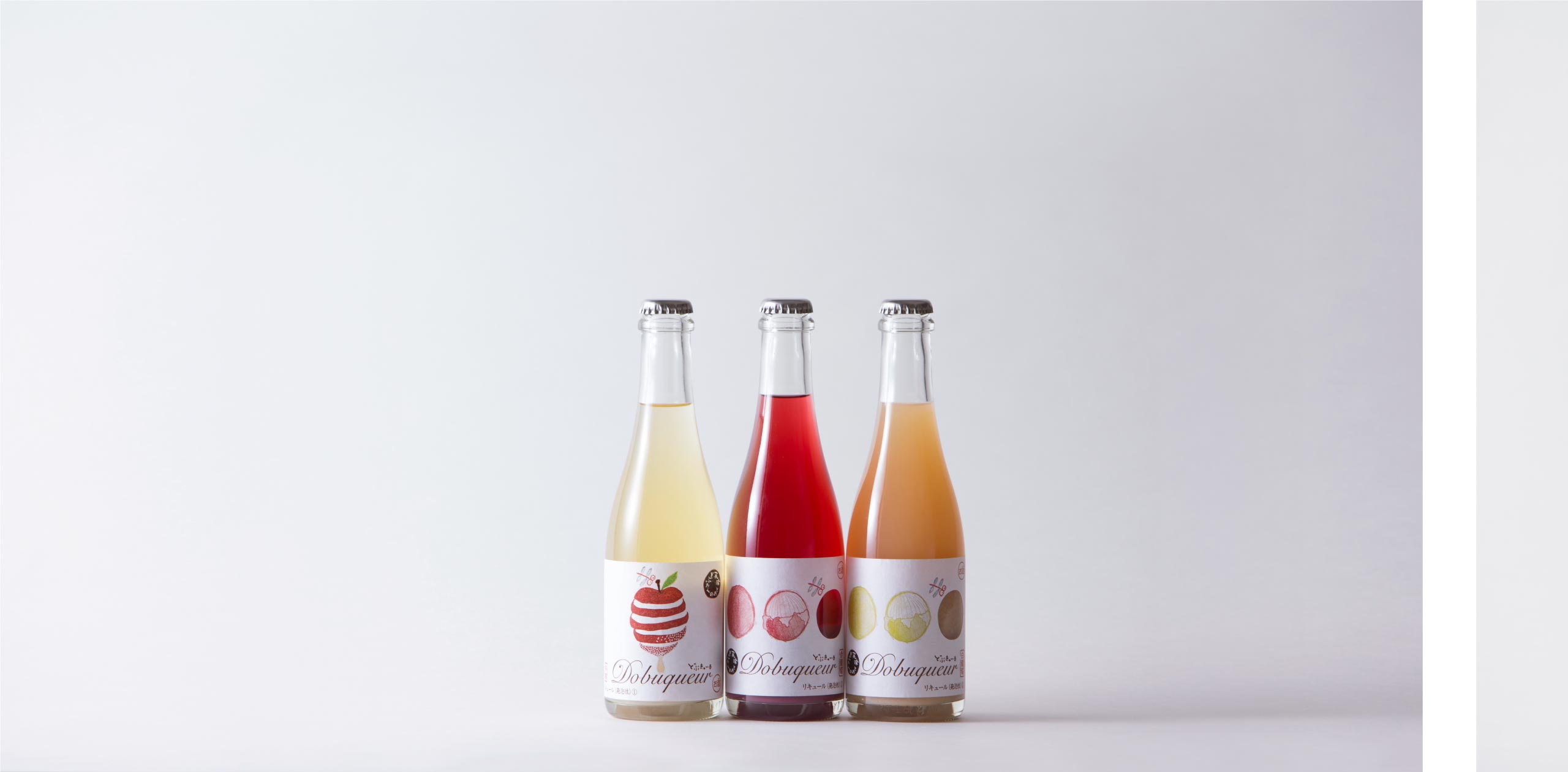
Dobuqueur
Dobuqueur is the world's first fruit-based doburoku liqueur. Created using only rice, kōji, and fruit juice without added sugars or sweeteners, it is available in three flavors─apple, red grape and white grape─and is a favorite among casual drinkers. Each variety is brewed with a unique method specifically tailored to bring out the aromas of that particular fruit. The juice is not adapted to fit the doburoku, but rather the doburoku adapts to fit the juice, resulting in a truly sublime beverage.
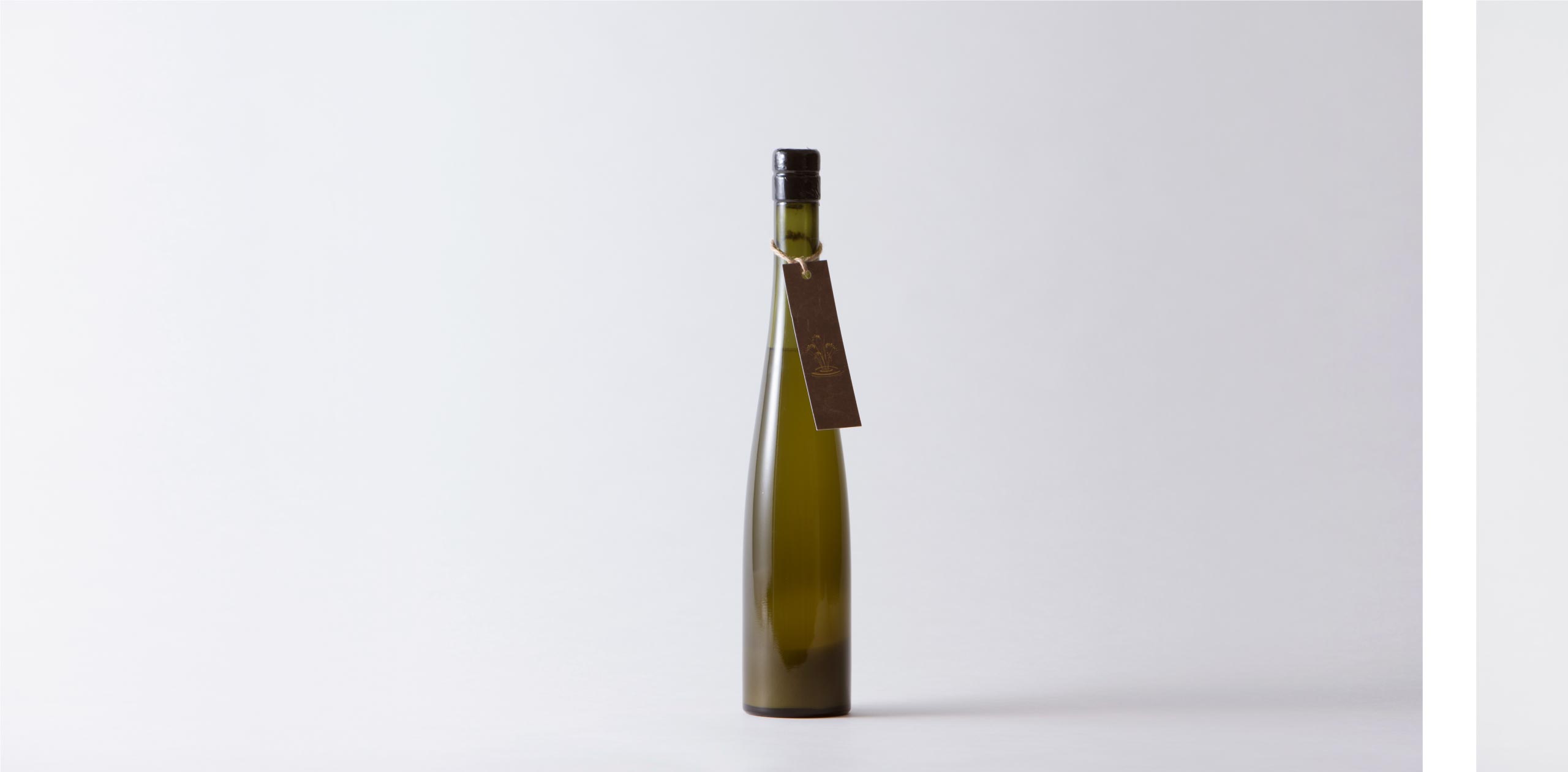
Dobusu
An artisanal vinegar created by Yotaro by adding acetic acid to his doburoku. Available only in select locations, given the limited quantity that can be produced, it is prized by chefs for its distinctive flavor, which preserves the refined elegance of doburoku.

